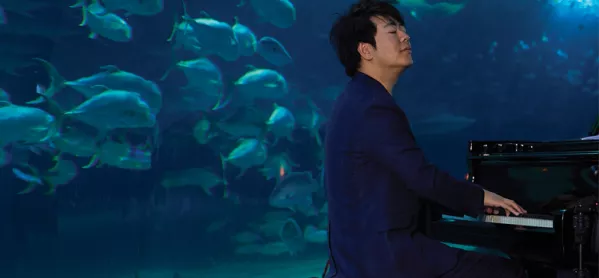In a large, white classroom in Harlem, New York, 30 10-year-olds sit in front of electric pianos playing Twinkle, Twinkle, Little Star together.
They have these lessons twice each week, always using their own piano and always under the instruction of a dedicated piano teacher.
Those who work at the school will tell you that these sessions are changing the children. The catchment area is an area of deprivation where 75 per cent of students are eligible for free school meals and more than 50 per cent do not hit state test standards.
Since introducing the piano curriculum, some students who did not come to school now attend every day; children have begun engaging with learning like they never had before; and there has been a transformation in the attitude, motivation and application that all students demonstrate in class.
“It makes us feel much more proud of ourselves,” explains fifth-grader Lindell Raison. “[The piano lessons] give us inspiration, hard work and dedication.”
Keys of inspiration
The programme, Keys of Inspiration, runs in six schools in the US, and positive feedback like this makes the man who came up with the concept, who financed it and who is pushing for the programme to be further expanded, feel two distinct emotions.
First, he’s happy that a conviction he has - that music is transformational both educationally and personally - is being proven.
But secondly, and more acutely, he feels disappointed that the education system does not see the worth in music that he does. And budget cuts, he fears, will make the problem of getting music into schools even worse.
“Music tuition looks easy to cut,” he says. “That’s because people don’t understand why we need music. It’s not about learning to play an instrument. It is about opening minds, cultivating imaginations, learning to communicate. It can influence every aspect of your life.”
Recipe for success
He should know. Music has taken 33-year-old Lang Lang from a one-bedroom flat in Beijing, one that contained just a bunk bed and a piano, to a private jet that transports him between headline shows around the world. He is widely seen as the greatest living classical pianist and is a UN Messenger of Peace.
It’s to be expected that Lang Lang believes that music tuition is essential to schooling. What is more surprising is how he thinks that schools are getting music tuition wrong. Teaching children about music is not just about playing an instrument, he insists, or about detailing theory. Instead, it’s about understanding music as an art.
“You need to let children interpret for themselves,” he explains. “You need them to have their own vision of the content - it’s about more than what is on the page, it is about feeling the music.”
Just as irksome for Lang Lang is the idea that the broader benefits of music teaching are not appreciated by some schools.
“As long as music tuition is done properly, you will see students learn how to focus, learn how to commit, learn how to be creative,” he says. “It teaches you logic. It can be very mathematical. And if you have a child struggling with a text, it can help to express that text through music, to use music as a medium of interpretation.
“If you want to be a lawyer, doctor, teacher, whatever the profession, if you can take the same process of making music, that dedication and willingness, you will succeed.”
A life in music
Lang Lang attended Beijing’s Central Conservatory of Music and picked up a series of prizes for piano before joining the acclaimed Curtis Institute of Music in Philadelphia, US.
Since then, he has gone on to become arguably the world’s best-known classical pianist. In 2009, he was named by Time magazine as one of the 100 most influential people in the world and he is now a UN ambassador for peace, as well as running the Lang Lang Foundation, a music charity.
The first three publications in his new series of piano tuition books with Faber, The Lang Lang Piano Method, were launched in March, with the next two being launched in September.
This is an edited article from the 22 April edition of TES. Subscribers can read the full article here. This week’s TES magazine is available in all good newsagents. To subscribe, click here. To download the digital edition, Android users can click here and iOS users can click here
Want to keep up with the latest education news and opinion? Follow TES on Twitter and like TES on Facebook

